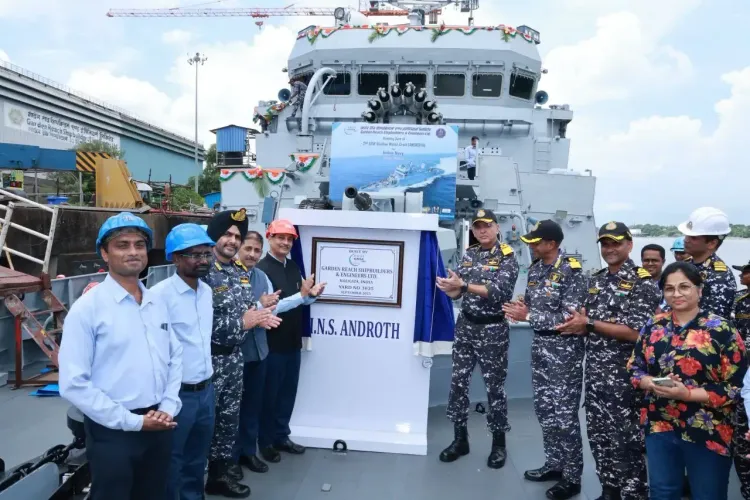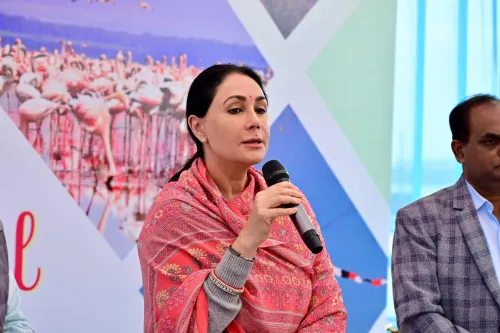Has the Indian Navy Strengthened its Underwater Capabilities with INS Androth?

Synopsis
Key Takeaways
- INS Androth enhances Indian Navy’s underwater capabilities.
- Constructed by Garden Reach Shipbuilders in Kolkata.
- Equipped with advanced SONAR and indigenous rockets.
- Significant step towards Aatmanirbhar Bharat.
- Symbolizes India's commitment to maritime security.
New Delhi, Sep 14 (NationPress) In a significant advancement for the Indian Navy’s underwater operations, INS Androth has officially joined the fleet. This vessel is the second of the eight ASW SWCs (Anti-Submarine Warfare Shallow Water Craft), constructed by Garden Reach Shipbuilders and Engineers (GRSE) in Kolkata.
The handover took place on September 13 at GRSE, Kolkata, signifying another leap towards self-sufficiency in defence production.
A spokesperson for the Navy indicated that these ASW SWCs have been indigenously designed and built following the Classification Rules of the Indian Register of Shipping (IRS) at GRSE, Kolkata, enhancing the Navy’s anti-submarine, coastal surveillance, and mine-laying abilities.
The name 'Androth' is both strategic and symbolic, taken from Androth Island in the Lakshadweep archipelago, reflecting India’s commitment to protecting its extensive maritime territories.
“These ships, measuring approximately 77 meters, are the largest Indian Naval vessels powered by a Diesel Engine-Waterjet system. They come equipped with cutting-edge lightweight torpedoes, indigenous ASW rockets, and advanced shallow water SONAR, facilitating superior submarine detection and engagement in coastal regions,” the official stated.
Notably, the delivery of Androth marks another milestone in the Indian Navy’s journey toward indigenous shipbuilding, aligning with the government’s vision of Aatmanirbhar Bharat, boasting over 80% indigenous content. This exemplifies the growing domestic capabilities and a move to lessen reliance on foreign imports.
Furthermore, it's important to acknowledge that the Indian security apparatus—including the Army, Air Force, Navy, as well as space, cyber, and other warfare domains—is undergoing a transformation, focusing on developing indigenous technologies, which will not only bolster security but also make India a self-reliant nation in defence.
In a similar vein, following Operation Sindoor, senior defence officials, including the Chiefs of the Army, Air Force, and Navy, alongside the CDS, emphasized the necessity of indigenous production in the defence sector. The commissioning of INS Androth represents another stride towards self-sufficiency in defence manufacturing.










